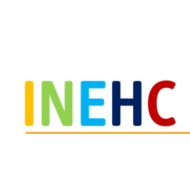Rules of Procedure of International Network for Educational History Collections, INEHC
§1 Aims
According the Memorandum of Understanding of the founding partners INEHC aims to promote and to connect international research on the collected sources in the history of education.
This is ensured, among other things, by building a platform for exchange and by organising annual meetings of the members.
§2 Membership
Membership is possible for memory institutions or scientific societies of educational history with national scope as well as individual scientists affiliated to relevant institutions.
New members can apply for admission to the Executive Committee of INEHC or can be nominated by members of INEHC.
Membership ends with the declaration of resignation to the Executive Committee, by deletion from the list of members or the death of the member.
§3 Office
The office serves as the contact point for INEHC. The office maintains the internet presence, organises the virtual meetings and assists in the organisation of the annual meetings.
Until further notice, the BBF provides the office.
§ 4 Executive Committee
The Executive Committee consists of the chairperson and two deputies with equal rights and the contact person of the office.
The chairperson and the two deputies are elected by secret ballot at the annual meeting by the members present for a period of two years. Re-election is possible.
The Executive Committee is responsible for:
- the promotion of the exchange of information between the members
- representing INEHC
- support the preservation and use of historical sources for research purposes.
- the conduct of other business arising from the aims of INEHC as defined in § 1.
- the preparation and conduct of the General Meeting/annual meeting
- rendering account to the General Meeting.
The Executive Committee is entitled to delegate individual tasks to INEHC members and other persons who, in order to fulfil this mandate, shall attend meetings of the Executive Committee. The Executive Committee informs all INEHC members.
The Executive Board may establish working groups for the fulfilment of specific tasks. The existence of the working groups ends with the fulfilment of the defined tasks. The working groups shall report on their activities at the General Meetings.
§ 5 General Meeting
The General Meeting takes place once per year. The organisation is carried out alternately by the various member institutions. The Executive Committee supports the member institution in the organisation.
If necessary, further meetings will take place via video conference. These meetings can be requested directly by the member institutions via the Executive Committee.
Meetings are open for interested individual researchers or information professionals (guests).
§ 6 Duration
This Rules may be adapted every new general assembly if needed.
